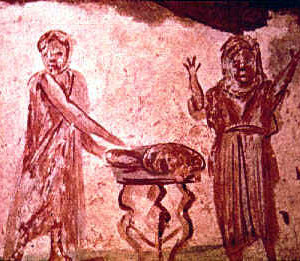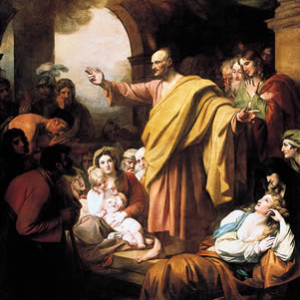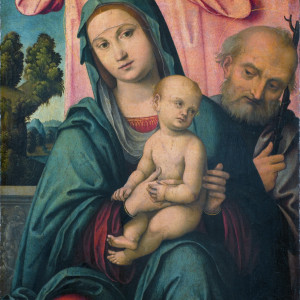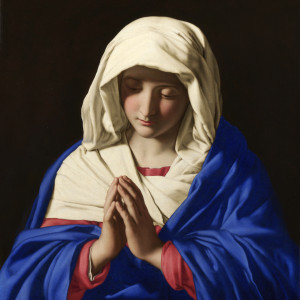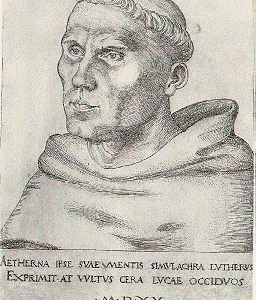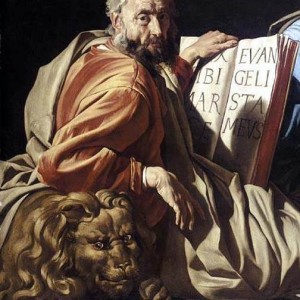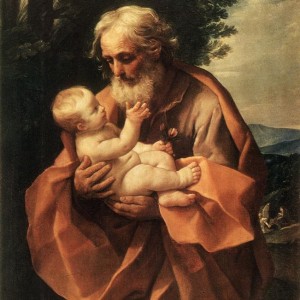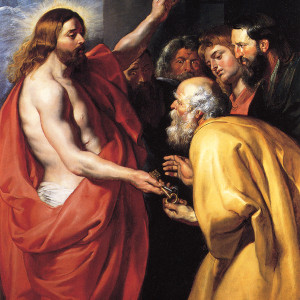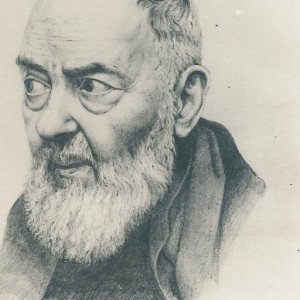Early Christian depiction of the Eucharist from the C A couple of my Evangelical friends were recently talking with me about John 6 and the Eucharist. If you haven’t read it recently, you should. In it, Jesus states repeatedly, and in no uncertain terms, that He is the Bread of Life, that our eternal salvation… Continue reading Does John 6:63 Refute the Real Presence?
Tag: Bible
Is the Church Simply the Set of All the Saved?
One of the major differences Catholics and Protestants have is on the nature of the Church. Is the Church a visible entity founded by Jesus Christ, or simply the invisible collection of all of the saved? Bible.ca, for example, includes a series of lessons from Ron Boatwright, who argues that “Only The Saved Are In The Lord’s Church”:… Continue reading Is the Church Simply the Set of All the Saved?
Answering Common Objections About Mary
In response to this post on what the Magnificat tells us about Marian veneration, a Protestant reader raised a number of objections that I think other readers may be struggling with: Lorenzo Costa, The Holy Family (c. 1500) “My soul magnifies (exaults) the Lord. And my spirit has rejoiced in God my savior (saved her from… Continue reading Answering Common Objections About Mary
What the Magnificat Tells Us About Marian Veneration
One of the most beautiful prayers in the New Testament is the Magnificat (Luke 1:46-55), which tells of the holiness and mercy of God. In that prayer, Mary proclaims (v. 46-49): “My soul magnifies the Lord, and my spirit rejoices in God my Savior, for he has regarded the low estate of his handmaiden. For… Continue reading What the Magnificat Tells Us About Marian Veneration
What Does the Book of James Say About Justification?
Perhaps no single doctrinal issue has caused more division between Catholics and Protestants than the question of justification, or how we are made righteous before God. Catholic believe that we are justified by faith, but must cultivate this faith through good works done in obedience to God (what St. Paul calls the “obedience of faith,” in… Continue reading What Does the Book of James Say About Justification?
Who Was St. Mark? The Story of a Soul.
Today is the Feast of St. Mark, celebrating one of the four Gospel writers. What do we know about him from the Bible? Matthias Stom,The Evangelists Saint Mark and Saint Luke (detail) (1635) The place we hear the most about him is in the Book of Acts. St. Luke generally refers to him in Acts as “John,… Continue reading Who Was St. Mark? The Story of a Soul.
Which Books Were in Early Christian Bibles?
What canon of Scripture did the earliest Christians use? A Protestant going by the handle Lojahw (Lover of Jesus and His word) argues that it was the modern Protestant Bible. Specifically, he claimed that: Bartolomeo Cavarozzi, St. Jerome in His Study (1617) There were at least nine church fathers from the second through the fourth centuries… Continue reading Which Books Were in Early Christian Bibles?
What Should Christians Think About Adoptive Parenting?
Guido Reni, Saint Joseph with the Infant Jesus (1635) A week ago, a Democratic lobbyist named Hilary Rosen said that Mitt Romney’s wife Ann “has actually never worked a day in her life,” since she’s a stay-at-home mom. A lot of people, particularly stay-at-home parents, were understandably upset. But that doesn’t justify the response of the Catholic League,… Continue reading What Should Christians Think About Adoptive Parenting?
Do Ecumenical Councils Eliminate the Need for the Papacy?
A friend asked me about an argument against Catholicism raised by Fr. Viktor Potapov, an Orthodox priest based here in D.C., in Chapter Ten of his Orthodoxy and Heterodoxy. The argument essentially says that the early Church believed in conciliar infallibility, but that the West replaced this idea with papal infallibility. Fr. Potapov first explains… Continue reading Do Ecumenical Councils Eliminate the Need for the Papacy?
If We Can’t Call Priests “Father,” It Doesn’t Leave Much
Padre Pio de Pietrelcina Some time ago, I wrote a post on why we Catholics call our priests “Father.” In a nutshell, this is a recognition of the priest’s spiritual fatherhood. St. Paul sets the pattern for this in 1 Cor. 4:15, when he tells Timothy, “I became your father through the Gospel.” The typical objection to… Continue reading If We Can’t Call Priests “Father,” It Doesn’t Leave Much
